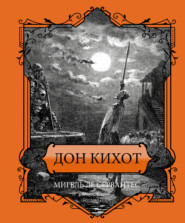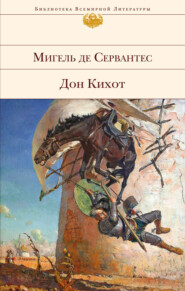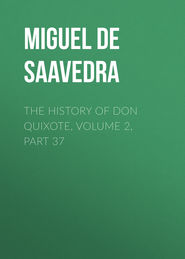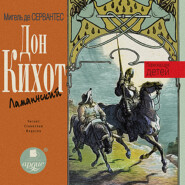По всем вопросам обращайтесь на: info@litportal.ru
(©) 2003-2025.
✖
The History of Don Quixote, Volume 2, Part 38
Настройки чтения
Размер шрифта
Высота строк
Поля
"And what does Le Bagatelle import in our Spanish?" asked Don Quixote.
"Le Bagatelle," said the author, "is as though we should say in Spanish Los Juguetes; but though the book is humble in name it has good solid matter in it."
"I," said Don Quixote, "have some little smattering of Italian, and I plume myself on singing some of Ariosto's stanzas; but tell me, senor – I do not say this to test your ability, but merely out of curiosity – have you ever met with the word pignatta in your book?"
"Yes, often," said the author.
"And how do you render that in Spanish?"
"How should I render it," returned the author, "but by olla?"
"Body o' me," exclaimed Don Quixote, "what a proficient you are in the Italian language! I would lay a good wager that where they say in Italian piace you say in Spanish place, and where they say piu you say mas, and you translate su by arriba and giu by abajo."
"I translate them so of course," said the author, "for those are their proper equivalents."
"I would venture to swear," said Don Quixote, "that your worship is not known in the world, which always begrudges their reward to rare wits and praiseworthy labours. What talents lie wasted there! What genius thrust away into corners! What worth left neglected! Still it seems to me that translation from one language into another, if it be not from the queens of languages, the Greek and the Latin, is like looking at Flemish tapestries on the wrong side; for though the figures are visible, they are full of threads that make them indistinct, and they do not show with the smoothness and brightness of the right side; and translation from easy languages argues neither ingenuity nor command of words, any more than transcribing or copying out one document from another. But I do not mean by this to draw the inference that no credit is to be allowed for the work of translating, for a man may employ himself in ways worse and less profitable to himself. This estimate does not include two famous translators, Doctor Cristobal de Figueroa, in his Pastor Fido, and Don Juan de Jauregui, in his Aminta, wherein by their felicity they leave it in doubt which is the translation and which the original. But tell me, are you printing this book at your own risk, or have you sold the copyright to some bookseller?"
"I print at my own risk," said the author, "and I expect to make a thousand ducats at least by this first edition, which is to be of two thousand copies that will go off in a twinkling at six reals apiece."
"A fine calculation you are making!" said Don Quixote; "it is plain you don't know the ins and outs of the printers, and how they play into one another's hands. I promise you when you find yourself saddled with two thousand copies you will feel so sore that it will astonish you, particularly if the book is a little out of the common and not in any way highly spiced."
"What!" said the author, "would your worship, then, have me give it to a bookseller who will give three maravedis for the copyright and think he is doing me a favour? I do not print my books to win fame in the world, for I am known in it already by my works; I want to make money, without which reputation is not worth a rap."
"God send your worship good luck," said Don Quixote; and he moved on to another case, where he saw them correcting a sheet of a book with the title of "Light of the Soul;" noticing it he observed, "Books like this, though there are many of the kind, are the ones that deserve to be printed, for many are the sinners in these days, and lights unnumbered are needed for all that are in darkness."
He passed on, and saw they were also correcting another book, and when he asked its title they told him it was called, "The Second Part of the Ingenious Gentleman Don Quixote of La Mancha," by one of Tordesillas.
"I have heard of this book already," said Don Quixote, "and verily and on my conscience I thought it had been by this time burned to ashes as a meddlesome intruder; but its Martinmas will come to it as it does to every pig; for fictions have the more merit and charm about them the more nearly they approach the truth or what looks like it; and true stories, the truer they are the better they are;" and so saying he walked out of the printing office with a certain amount of displeasure in his looks. That same day Don Antonio arranged to take him to see the galleys that lay at the beach, whereat Sancho was in high delight, as he had never seen any all his life. Don Antonio sent word to the commandant of the galleys that he intended to bring his guest, the famous Don Quixote of La Mancha, of whom the commandant and all the citizens had already heard, that afternoon to see them; and what happened on board of them will be told in the next chapter.

















